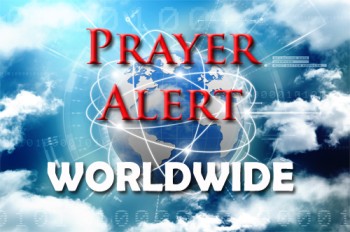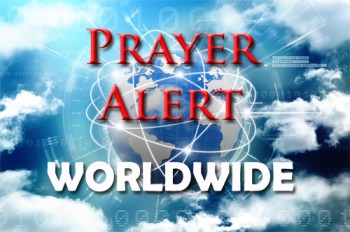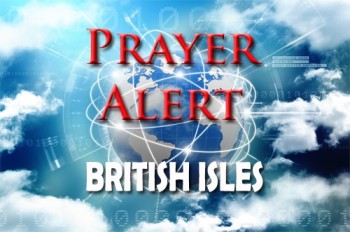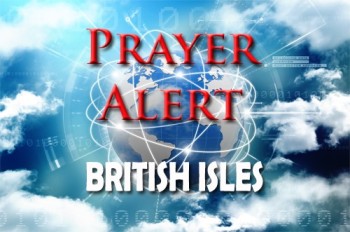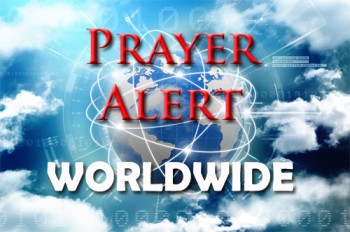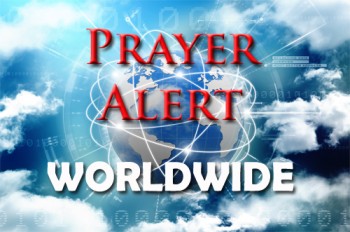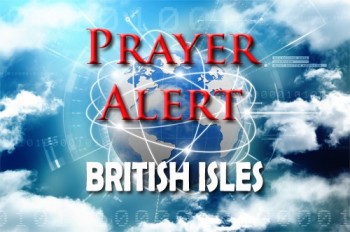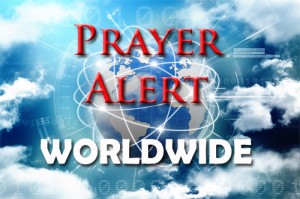Displaying items by tag: Amnesty International
Guinea: human rights activists disappeared a year ago
A full year has passed since Guinean activists Oumar Sylla (known as Foniké Menguè) and Mamadou Billo Bah were forcibly disappeared on 9 July 2024, with no word on their whereabouts. Arrested by armed men in Conakry and reportedly taken to the Loos archipelago, the two members of the now-banned National Front for the Defence of the Constitution (FNDC) are believed to have endured torture and secret detention. Their case reflects a troubling rise in forced disappearances under Guinea’s ruling junta, which human rights organisations describe as a ‘climate of terror.’ Other victims include civil society leader Abdoul Sacko - abducted, tortured, and abandoned in the bush - and lawyer Mohamed Traoré, also abducted and abused. Despite initial promises of investigations, authorities have remained silent. Amnesty International has called for immediate and transparent inquiries, but families continue to wait in anguish. As hope fades, the international community is urged to demand accountability for Guinea’s growing list of enforced disappearances.
Turkey: devastating blow’ for human rights
On 25 April Turkish philanthropist and human rights activist Osman Kavala was found guilty of attempting to overthrow the government and sentenced to life without possibility of parole. He had spent the last 4½ years in prison without being convicted. The sentence is the most severe to be given. He will be in solitary confinement for the rest of his life. He said, ‘The aggravated life sentence demanded against me is an assassination that cannot be explained through legal reasons.’ Human Rights Watch said the sentence was ‘the worst possible outcome to this show trial’. Amnesty International said, ‘We have witnessed a travesty of justice of spectacular proportions. This verdict deals a devastating blow not only to Osman Kavala but to everyone who believes in justice and human rights activism in Turkey and beyond. The decision defies all logic. Prosecuting authorities have repeatedly failed to provide any evidence that substantiates the baseless charges. We call for his immediate release as he appeals these draconian verdicts.’ See
UK rejects Amnesty report against Israel
Amnesty International’s recent report accusing Israel of ‘apartheid’ is ‘a shameful misrepresentation of Israel’s diverse and dynamic society’, said the Israeli embassy in London, describing it as antisemitic. ‘We do not agree with the use of this terminology’, a Foreign Office spokesperson said. The UK has joined other countries who have spoken out against the Amnesty report, calling it ‘false, biased, and antisemitic’ and endangering the safety of Jews around the world. Israel’s foreign ministry said Amnesty UK was ‘corrupted by racism and xenophobia’. Its foreign minister said Amnesty was no longer ‘a respected organisation’, but the opposite. ‘It echoed propaganda without checking the facts. Instead of seeking the truth Amnesty echoes the same lies as terrorist organisations.’ Meanwhile anti-Semitism in 2021 is 'the worst year on record': see
Government: Britishvolt risks of slavery
The mining of key metals such as cobalt for car batteries has been linked to appalling working conditions amounting to modern slavery in countries such as DRC where much of the world’s cobalt is sourced. Also, environmental damage is caused by lithium extraction in Chile, Argentina, and Bolivia. Responding to news that the Government will be investing £100m in Britishvolt's new 'gigafactory' in Northumberland to boost production of electric car batteries, Amnesty International said although the news is a leap forward for British industry, offering jobs and a very meaningful opportunity for the UK to decarbonise transport in the fight against climate change, it is absolutely crucial that the Government, Britishvolt, and its investors ensure there are diligence systems in place. They must be honest and transparent about the environmental and human rights Britishvolt faces in sourcing cobalt, lithium, nickel, copper and other battery metals. See
China: Amnesty report on detainees in camps
The head of Amnesty International said China has created a ‘dystopian hellscape’ for people detained in Xinjiang camps, who are routinely tortured. A report based on 50+ former detainees details crimes against humanity - including mass imprisonment, torture and persecution - carried out by Chinese authorities against Uyghur Muslims and other ethnic minorities. The secretary general of Amnesty said, ‘China must immediately dismantle the internment camps, release the people arbitrarily detained in them and in prisons, and end the systematic attacks against Muslims in Xinjiang.’ Since 2017 hundreds of thousands - and possibly more than one million people - have been sent to camps in Xinjiang. China for a long time denied the existence of any camps. It eventually changed tack and now says the camps are voluntary ‘vocational training centres’, necessary to combat terrorism. President Xi Jinping said his government's policies in the region are ‘totally correct’.
20% speak to neighbour for first time
The UK public is showing impressive levels of solidarity, humanity, and kindness during the coronavirus crisis, according to a new opinion poll by Amnesty International. The poll shows that huge numbers have helped a stranger, volunteered their time, reconnected with someone they’d previously lost contact with. One in five have spoken to their neighbour for the first time. Also, an estimated 30 million people have taken part in the Thursday ‘Clap for Carers’ initiative.
Iran protests: 143 Killed
Videos reveal crackdown regime tried to hide from world… One video filmed through a doorway appears to show a woman looking at a teenage boy lying in a pool of blood on a pavement, as a riot policeman swings a baton at people running past him.
Another from the southern city of Shiraz shows a crowd trying to help a motionless man on the ground, as other people retreat along a smoke-filled street amid the sounds of shouting, screaming and gunfire.
In a third. taken from inside a moving car in the capital, Tehran, a woman can be heard screaming as plainclothes security personnel or militiamen detain a man.
It was the fear of such footage reaching the outside world that prompted the authorities in Iran to shut down access to the internet for more than eight days earlier this month, as protests against a sharp rise in the price of petrol spread across the country.
Now the internet has been partially restored, videos have been appearing on social media that paint a picture of a government crackdown more brutal and bloodier than many had feared. The identities and stories of the protesters who lost their lives have also emerged.
The Iranian authorities have not released any official figures about casualties, but Amnesty International has received what it considers credible reports that at least 143 protesters were killed after the protests erupted on 15 November.
The human rights group says the deaths resulted almost entirely from the intentional use of firearms by the security forces - though one man was reported to have died after inhaling tear gas and another after being beaten. Amnesty believes the death toll is significantly higher, and activists and official sources inside Iran have told BBC Persian that it exceeds 200.
However, the videos filmed by Iranians on their smartphones - many of them graphic and difficult to watch - have cast doubt on the government's claims. The footage appears to show security personnel and members of the paramilitary Basij force, which is frequently used to help suppress dissent, beating up unarmed protesters in the streets and firing live round into crowds at close range.
Sources inside Iran have told BBC Persian that the number of detainees is in the thousands. Despite the assertion by the Supreme Leader Ayatollah Ali Khamenei that the protesters had "roots outside of the country", the Ministry of Intelligence told parliament that most of those held were unemployed youths from poor families.
Journalists based in Iran were limited in their ability to report on the protests or were too afraid to do so, and those based elsewhere were hampered by the internet shutdown. But BBC Persian, which is banned from Iran, was able to get in touch by telephone and other means with citizen journalists, activists and other trusted sources on the ground. Their videos showed the protesters targeting symbols of the government, the clerical establishment and the security forces, as well as banks and petrol stations.
The epicentres of the protests were predominantly Kurdish towns on the western border with Iraq, as well as areas on the outskirts of major cities like Tehran, Karaj and Shiraz. All are places with among the highest levels of unemployment in the country.
“The price of petrol is rising, we are poorer,” protesters in Shiraz chanted in one video.
“The supreme leader lives like a God. We, the people live like beggars,” said people in Malard, near Tehran in another.
“No to Gaza, no to Lebanon. We sacrifice our lives for Iran” was a chant heard in Isfahan.
Clearly, there is disquiet about Iran’s activities in the Middle East. The Islamic Revolution Guard Corps (IRGC) has spent billions of dollars arming, training and paying militias in the region, saying that if the force does not fight Iran’s enemies beyond its borders then it will have to face them on the streets of Tehran.
But the protesters in the streets believe the money should have been invested in their country and their future.
US sanctions reinstated by President Donald Trump last year when he abandoned a nuclear deal with Iran have targeted the country’s oil and banking sectors. The sanctions, combined with corruption and mismanagement, have pushed the Iranian economy to the brink of collapse. But the crisis has not persuaded the government to change its policies.
Victims’ stories
State media and newspapers close to the security forces depicted the protesters as hooligans, who they said were seeking to loot and vandalise public property.
But the stories BBC Persian has heard from the families of those killed paint a different picture.
Fatima, a 40-year-old mother of two, was one of the demonstrators killed near Tehran.
Her family said she went out to protest against unemployment and inflation.
Another victim was Armin Qaderi, a 10-year-old boy, from Kermanshah. He died after going out to buy bread, according to his family.
Many families told BBC Persian that their relatives went out to express their anger at the economic crisis but that the authorities answered them with bullets.
More at: https://www.bbc.co.uk/news/world-middle-east-50562584
Pray: for the government of Iran to review its international policies and to listen to the concerns of its people.
Pray: for the heavy-handed violence and indiscriminate shooting of peaceful protestors by Government forces to stop.
Pray: for millions of Iranians whose livelihoods have been adversely affected by the economic sanctions and corruption that a positive breakthrough will happen soon.
Pray: that the voice of the Iranian people will be heard and these protests will not be in vain.
Saudi Arabia: youth faces execution for actions when aged 10
Amnesty International reported that the Saudi public prosecutor has sought the death penalty for Murtaja Qureiris for offences and participating in protests when he was ten years old. This prompted a global outcry in support of the teenager. Riyadh has come under mounting international scrutiny over its human rights record since a journalist’s murder and the detention of women's rights activists who are still on trial. In April, 37 men were beheaded for ‘terrorism’ crimes. The UN said most of them may not have had fair trials, and at least three were minors when sentenced. We can give thanks for the increasing pressure that is being put on the Saudi government by Amnesty, the UN, and the wider international community to release imprisoned human rights activists. Ask God to use this pressure also to bring freedom to Christians who are in prison for their faith.
Amnesty International’s 'toxic culture' of bullying
A review was launched into working practices at Amnesty International after two staff members, Gaetan Mootoo and Rosalind McGregor, committed suicide last year. The review found that ‘organisational culture and management failures’ were the root cause of deep staff unhappiness in Amnesty’s ‘toxic culture’ of workplace bullying. Their efforts to address its problems were described as ‘ad hoc, reactive, and inconsistent’, and the senior leadership team was described as out-of-touch, incompetent and callous. There was bullying, harassment, sexism, racism, and poor management. Decentralising the organisation from its global headquarters in London had caused unnecessary turmoil and compounded job pressures. Seven management team members acknowledged that there was a climate of tension and mistrust, and have offered to resign.
Canada: forced sterilisation of indigenous women
In 2017 two indigenous women alleged that they were coerced into undergoing sterilisation at a Saskatchewan hospital. More than sixty women have now joined them in a pending class action lawsuit, seeking compensation for the violation of their rights, supported by Amnesty International (see). The legal challenge centres on whether proper and informed consent was obtained before the women were sterilised. One woman said she explicitly refused to have her fallopian tubes tied when staff suggested the procedure after the birth of her son. On 7 December the UN officially called on Canada to ‘ensure that all allegations of forced or coerced sterilisation are impartially investigated, and the persons responsible held accountable with adequate redress for the victims’. Pray for policies and accountability mechanisms across all provinces to ensure there are clear regulations around free will, and informed consent.
